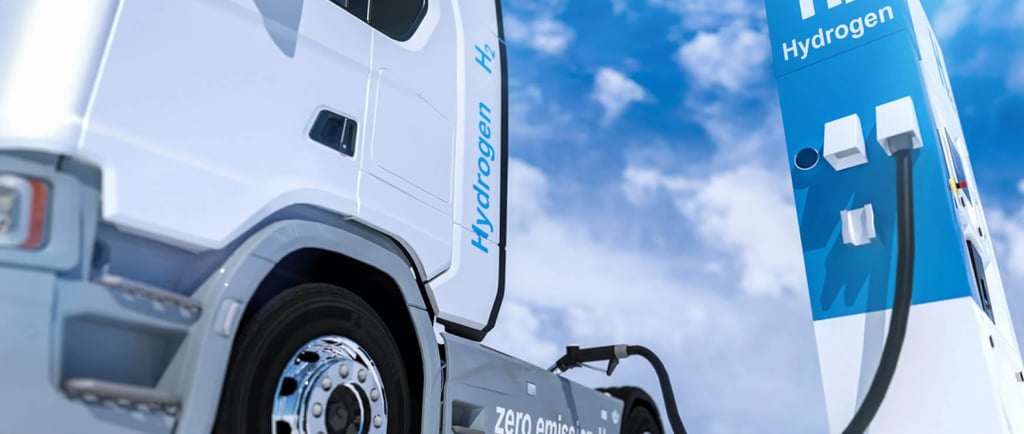The Future of Hydrogen Trucks: Advantages and Challenges
Hydrogen trucks are an exciting development in the world of sustainable transportation. These trucks use hydrogen fuel cells to generate electricity, which powers the vehicle's electric motor. The main advantages of hydrogen trucks include.
2/25/20252 min read


The Emergence of Hydrogen Trucks
The transportation industry is witnessing a significant shift towards sustainable solutions as organizations aim to reduce their carbon footprints. Among the alternatives making waves in the realm of commercial vehicles is hydrogen trucks. These vehicles utilize hydrogen fuel cells to power electric motors, promising not only efficiency but also a reduction in greenhouse gas emissions. In this blog post, we will explore the future prospects of hydrogen trucks, detailing their advantages and challenges.
Advantages of Hydrogen Trucks
One of the primary advantages of hydrogen trucks lies in their environmental benefits. Unlike traditional diesel trucks, hydrogen fuel cell vehicles emit only water vapor as a byproduct. This significant reduction in emissions makes them an appealing option for companies seeking to contribute to environmental sustainability.
Additionally, hydrogen trucks offer considerable range and refueling advantages. While battery-electric trucks require lengthy charging times and may have limitations in range, hydrogen trucks can be refueled in a matter of minutes and provide a driving range comparable to that of conventional trucks. This is particularly beneficial for long-haul routes where downtime for charging can be costly.
Furthermore, the scalability of hydrogen production stands as a significant benefit. Hydrogen can be produced from various sources, including natural gas, biomass, and even through electrolysis using renewable energy. This versatility allows for the potential to produce hydrogen in a sustainable manner, reducing dependence on fossil fuels.
Challenges Facing Hydrogen Trucks
Despite their advantages, hydrogen trucks face notable challenges that may impede widespread adoption. One major hurdle is the current infrastructure deficiency. The refueling stations for hydrogen are scarce, especially when compared to the extensive network of charging stations for electric vehicles. This lack of availability serves as a barrier for fleet operators considering the transition to hydrogen-powered trucks.
Another concern involves the production and storage of hydrogen itself. The majority of hydrogen currently produced is derived from fossil fuels through processes that emit significant greenhouse gases, such as steam methane reforming. Transitioning to greener methods of hydrogen production is crucial to ensuring that the environmental benefits of hydrogen trucks are realized.
In addition, there are financial considerations, as the upfront costs of hydrogen trucks and related infrastructure can be substantially higher than those for traditional vehicles. This economic challenge necessitates investment and support from governmental entities and private sectors alike to create incentives and subsidize infrastructure development.
The Road Ahead for Hydrogen Trucks
Looking toward the future, the trajectory of hydrogen trucks appears promising. Recent advancements in hydrogen technology and increasing investments in infrastructure can pave the way for their broader integration into the transportation market. As more researchers and industrial players prioritize green technology, the potential for hydrogen trucks to become a mainstream option grows.
In conclusion, hydrogen trucks represent a pivotal innovation in sustainable transport, showcasing significant advantages such as low emissions and quick refueling times. Despite facing challenges concerning infrastructure and production methods, with concerted effort from various stakeholders, hydrogen trucks could play a vital role in the future of commercial transportation.
Support
Ask questions and share truck repair tips.
Connect
© 2025. All rights reserved.
